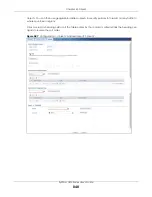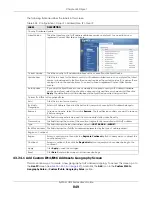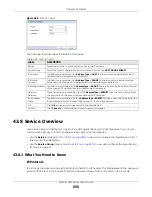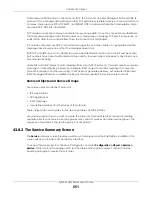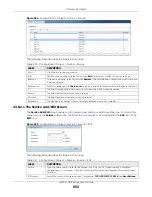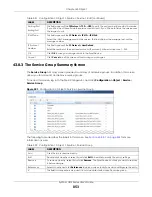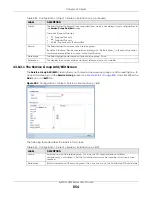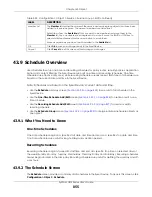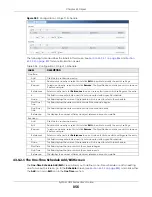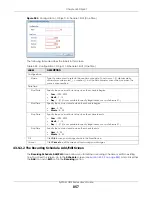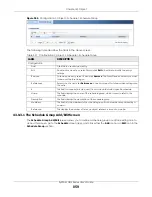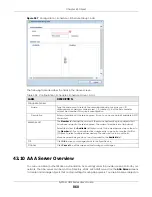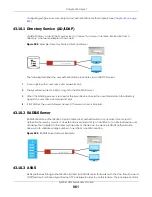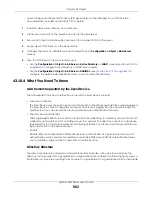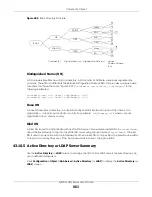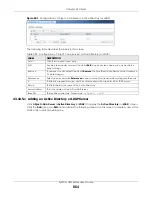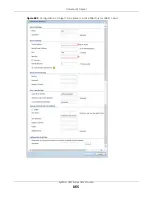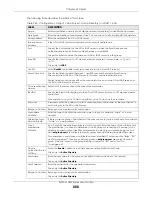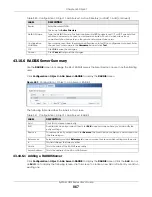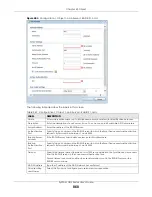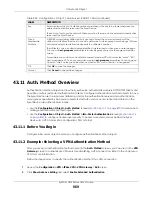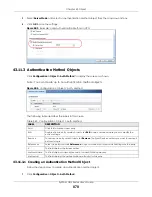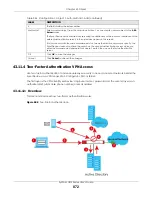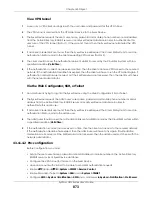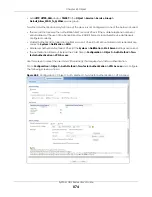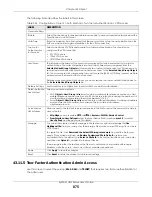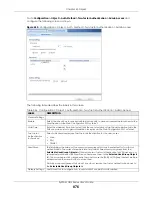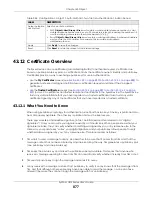
Chapter 43 Object
ZyWALL USG Series User’s Guide
862
server software and physical OTP tokens (PIN generators). Do the following to use OTP. See the
documentation included on the ASAS’ CD for details.
1
Install the ASAS server software on a computer.
2
Create user accounts on the Zyxel Device and in the ASAS server.
3
Import each token’s database file (located on the included CD) into the server.
4
Assign users to OTP tokens (on the ASAS server).
5
Configure the ASAS as a RADIUS server in the Zyxel Device’s
Configuration > Object > AAA Server
screens.
6
Give the OTP tokens to (local or remote) users.
• Use the
Configuration > Object > AAA Server > Active Directory
(or
LDAP
)
) to configure Active Directory or LDAP server objects.
• Use the
Configuration > Object > AAA Server > RADIUS
) to
configure the default external RADIUS server to use for user authentication.
43.10.4 What You Need To Know
AAA Servers Supported by the Zyxel Device
The following lists the types of authentication server the Zyxel Device supports.
• Local user database
The Zyxel Device uses the built-in local user database to authenticate administrative users logging into
the Zyxel Device’s Web Configurator or network access users logging into the network through the
Zyxel Device. You can also use the local user database to authenticate VPN users.
• Directory Service (LDAP/AD)
LDAP (Lightweight Directory Access Protocol)/AD (Active Directory) is a directory service that is both
a directory and a protocol for controlling access to a network. The directory consists of a database
specialized for fast information retrieval and filtering activities. You create and store user profile and
login information on the external server.
• RADIUS
RADIUS (Remote Authentication Dial-In User Service) authentication is a popular protocol used to
authenticate users by means of an external or built-in RADIUS server. RADIUS authentication allows
you to validate a large number of users from a central location.
Directory Structure
The directory entries are arranged in a hierarchical order much like a tree structure. Normally, the
directory structure reflects the geographical or organizational boundaries. The following figure shows a
basic directory structure branching from countries to organizations to organizational units to individuals.
Summary of Contents for USG110
Page 27: ...27 PART I User s Guide ...
Page 195: ...195 PART II Technical Reference ...
Page 309: ...Chapter 10 Interfaces ZyWALL USG Series User s Guide 309 ...
Page 313: ...Chapter 10 Interfaces ZyWALL USG Series User s Guide 313 ...
Page 358: ...Chapter 10 Interfaces ZyWALL USG Series User s Guide 358 ...
Page 373: ...Chapter 10 Interfaces ZyWALL USG Series User s Guide 373 ...

